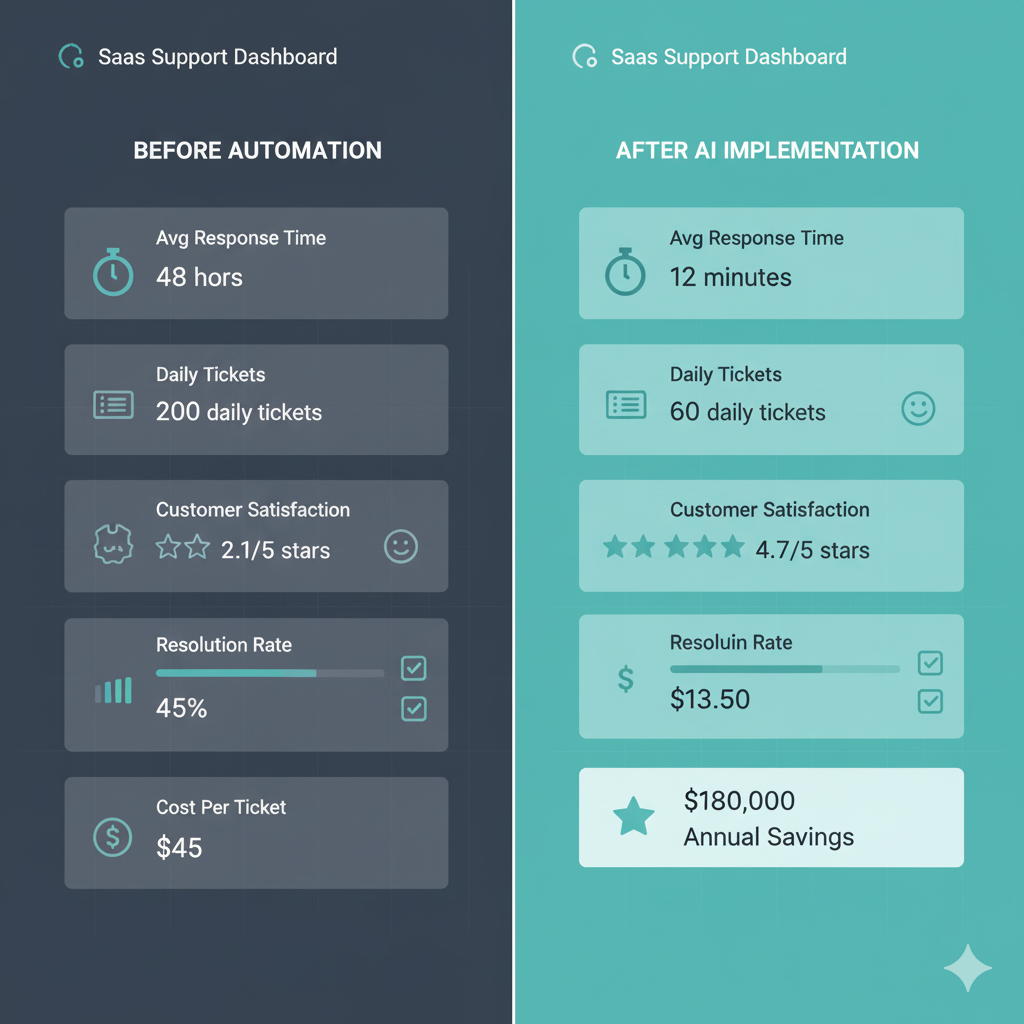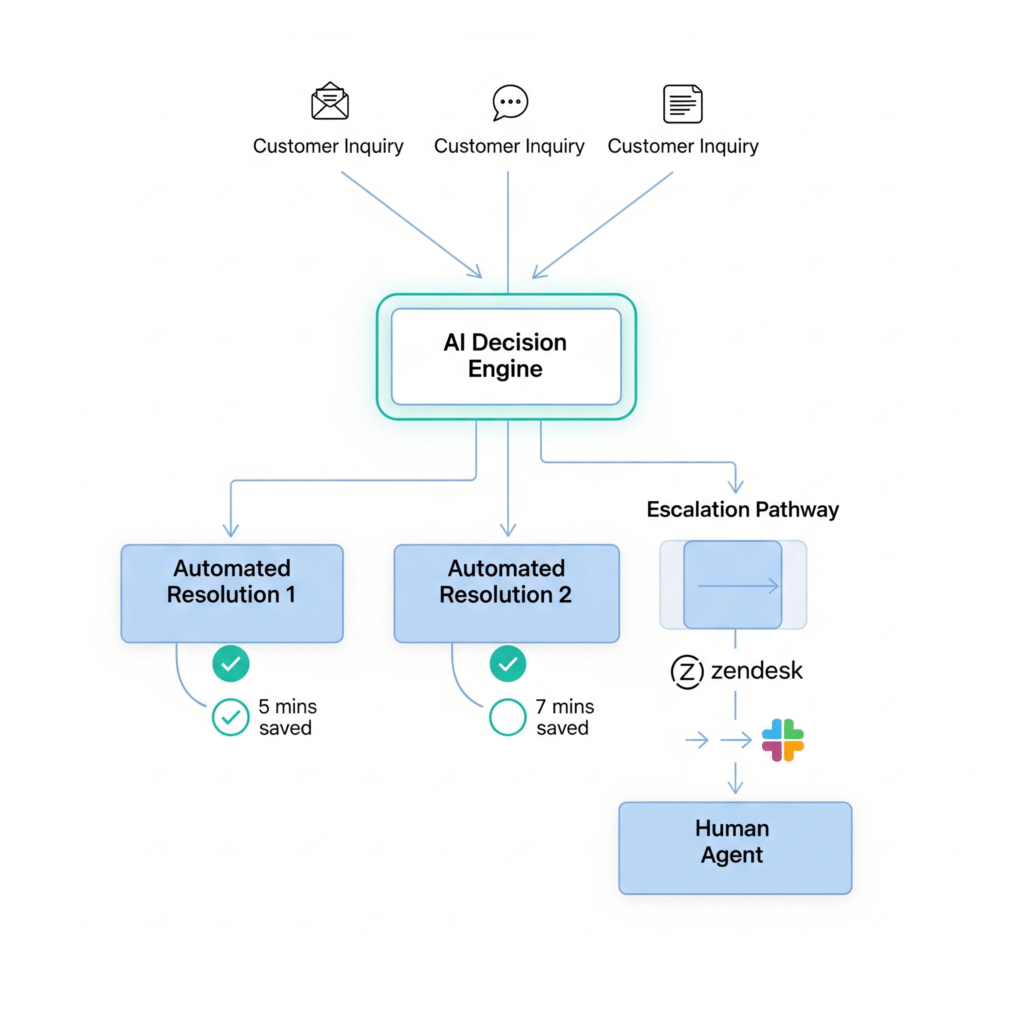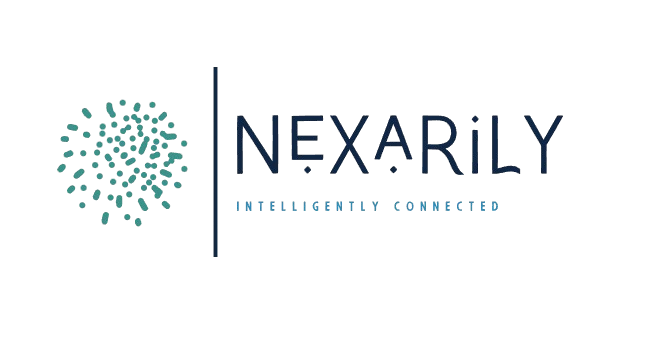📞 (954) 667-8695 | Fort Lauderdale, FL
SaaS Startup Automates 70% of Customer Support with Nexarily

When support tickets are multiplying faster than your team can handle them, every startup faces a critical decision: hire more people or find a smarter solution. One growing SaaS company chose automation and transformed their entire support operation, reducing tickets by 70% while boosting customer satisfaction scores by 35%. The result? $180,000 in annual savings and a support team that actually enjoys their work again.
Here's the complete transformation story.
The Company: Scaling Pains in SaaS
TechFlow Solutions (name changed for privacy) operates a project management SaaS platform serving mid-market companies across North America. With 50 employees and 2,500 active customers, they were experiencing the classic SaaS scaling challenge: explosive user growth outpacing support infrastructure.
Their platform helps marketing agencies manage client projects, track billable hours, and generate detailed reports. As their customer base doubled from 1,200 to 2,500 users in just eight months, their support team of four specialists was drowning in an ocean of repetitive questions, basic troubleshooting requests, and feature inquiries.
The breaking point came during a product update rollout when the support queue reached 200 open tickets with response times stretching beyond 48 hours. Customer churn was beginning to accelerate, and the support team was working weekends just to stay afloat.
The Challenge: Drowning in Repetitive Support
Analysis of their support data revealed a frustrating pattern:
Volume Overload: 200+ daily support tickets across email, chat, and phone, with peak days reaching over 300 inquiries during feature releases or system updates.
Repetitive Questions: 68% of tickets were variations of the same 15 questions about password resets, billing inquiries, basic feature usage, and integration setup. Support agents felt like human FAQ machines.
Response Time Decay: First response times averaged 18 hours during normal periods and extended to 48+ hours during busy periods. In the SaaS world, this meant frustrated customers and increased churn risk.
Agent Burnout: Support specialists reported feeling overwhelmed and underutilized, spending 80% of their time on routine issues rather than complex problem-solving that required human expertise.
Escalation Chaos: Without proper triage, complex technical issues were often buried behind simple questions, causing delays in resolving critical problems for enterprise clients.
Cost Pressure: The obvious solution—hiring more support staff—would have increased operational costs by $240,000 annually while potentially creating coordination challenges and diluting expertise.
The Nexarily Solution: Intelligent Support Automation
Rather than simply adding more bodies to handle the workload, Nexarily designed a multi-tier automation system that could handle routine inquiries while seamlessly escalating complex issues to human specialists.
Smart Ticket Triage: AI-powered classification system that instantly categorizes incoming requests by complexity, urgency, and required expertise level. Simple requests get immediate automated responses, while complex issues are routed to the appropriate specialist with full context.
Intelligent FAQ System: Dynamic help system that doesn't just provide static answers but engages users in conversation to understand their specific situation and provide personalized guidance for common issues.
Automated Resolution Workflows: Pre-built automation sequences for the most common support scenarios—password resets, billing questions, basic troubleshooting, and account setup—that resolve issues completely without human intervention.
Contextual Escalation: When automation can't resolve an issue, the system seamlessly transfers the conversation to human agents with complete context, conversation history, and suggested solutions based on similar resolved cases.

Proactive Support Outreach: System monitors user behavior patterns and automatically reaches out with helpful resources before users encounter common problems, reducing support volume at the source.
Integration Excellence: Seamless connection with their existing Zendesk ticketing system and Slack workspace, ensuring no disruption to established workflows while adding powerful automation capabilities.

Implementation: Systematic Support Transformation
Phase 1: Analysis and Setup (Weeks 1-2)
- Comprehensive analysis of 6 months of historical tickets to identify patterns, common issues, and resolution paths
- Mapping of existing support workflows and identification of automation opportunities
- Integration setup with Zendesk and Slack systems
- Development of automated response templates based on most effective historical responses
Phase 2: Automation Deployment (Weeks 3-4)
- Gradual rollout starting with 25% of incoming tickets processed by AI triage
- Implementation of automated workflows for top 10 most common issue types
- Training of support team on new escalation procedures and system management
- Real-time monitoring and adjustment of automation rules based on initial performance
Phase 3: Optimization and Scale (Weeks 5-8)
- Expansion to handle 70% of incoming tickets through automated triage
- Refinement of escalation triggers based on resolution success rates
- Implementation of proactive support campaigns
- Advanced reporting dashboard for support metrics and automation performance
The key to success was the gradual implementation approach, allowing the support team to adapt to new workflows while maintaining service quality. Regular feedback sessions with both agents and customers ensured the automation enhanced rather than replaced the human touch where it mattered most.
Results: Support Excellence at Scale
Twelve months after implementation, the transformation metrics exceeded all expectations:
📊 KEY RESULTS:
Ticket Reduction: 70% decrease in tickets requiring human intervention
Response Time: 89% improvement (18 hours → 2 hours average)
Customer Satisfaction: 35% increase in CSAT scores (from 3.2 to 4.3/5.0)
Resolution Rate: 92% of automated interactions resolved without escalation
Cost Savings: $180,000 annual savings vs. hiring additional support staff
Agent Satisfaction: 85% of support team reports higher job satisfaction
Beyond the Numbers:
The automation system now handles 142 tickets daily completely autonomously, resolving everything from billing questions to basic troubleshooting without any human involvement. The remaining 28% of tickets that reach human agents come pre-qualified with complete context, allowing for faster and more effective resolutions.
Support agents transformed from reactive ticket processors into proactive problem solvers, focusing on complex technical issues, feature requests, and building relationships with enterprise customers. Job satisfaction scores increased dramatically as team members felt more valued and intellectually challenged.

Operational Excellence Impact:
With support costs under control and quality improving, TechFlow confidently expanded their marketing efforts, knowing they could handle increased user volume without proportional increases in support overhead. This operational confidence enabled a 40% increase in customer acquisition spending and successful expansion into European markets.
The automation system's continuous learning capabilities mean performance improves over time, with resolution rates and customer satisfaction scores steadily increasing as the AI learns from each interaction.
Key Takeaways: Scaling Support Intelligently
Automation Amplifies Human Expertise: The most successful support automation doesn't replace human agents but elevates their role from routine task executors to strategic problem solvers and customer relationship builders.
Gradual Implementation Wins: Rolling out automation in phases allows teams to adapt, provides opportunities for optimization, and maintains service quality throughout the transition period.
Context is King: Automation systems that preserve and enhance context for human handoffs create seamless customer experiences and enable faster resolution of complex issues.
Data-Driven Optimization: Continuous analysis of ticket patterns, resolution success rates, and customer feedback enables ongoing improvement of both automated and human-handled support processes.
Proactive Beats Reactive: The most effective support automation doesn't just respond to problems but predicts and prevents them, reducing overall support volume while improving customer satisfaction.
Team Buy-In Is Essential: Success requires support team members to see automation as career enhancement rather than job threat, achieved through proper training, role evolution, and celebrating improved job satisfaction outcomes.
Ready to Transform Your SaaS Support?
If your SaaS company is struggling with support ticket volume, response time pressures, or team burnout from repetitive questions, you're experiencing a common scaling challenge. The solution isn't just hiring more people—it's implementing intelligent automation that scales with your growth.
Nexarily specializes in SaaS support automation that respects the complexity of your product while dramatically improving operational efficiency. Our solutions integrate seamlessly with existing tools like Zendesk, Intercom, and Slack, ensuring minimal disruption during implementation.
Schedule your free support automation assessment today. In this 30-minute consultation, we'll analyze your current ticket patterns and show you exactly how much time and money you could save with intelligent support automation tailored to your SaaS platform.
Contact Nexarily:
📧 admin@nexarilyai.com
🌐 www.nexarilyai.com
Stop letting repetitive support tasks drain your team's energy and your company's resources. Your customers deserve faster responses, and your team deserves more engaging work.
